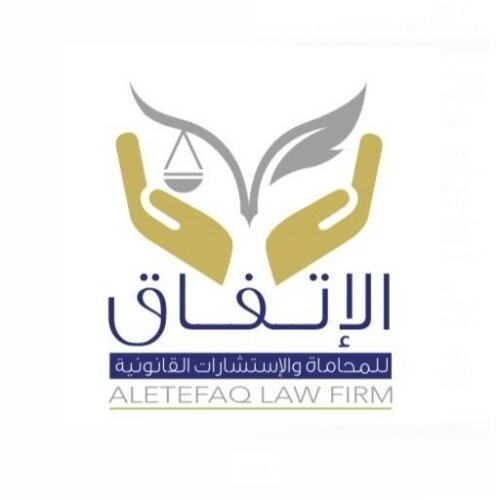Best Civil & Human Rights Lawyers in Qatar
Share your needs with us, get contacted by law firms.
Free. Takes 2 min.
Or refine your search by selecting a city:
List of the best lawyers in Qatar
About Civil & Human Rights Law in Qatar:
Civil & Human Rights in Qatar are protected by the country's constitution, international treaties, and local laws. These rights include the right to equality, freedom of expression, freedom of religion, and the right to fair treatment under the law.
Why You May Need a Lawyer:
You may need a lawyer for Civil & Human Rights issues in Qatar if you believe your rights have been violated, if you are facing discrimination, if you are being unfairly treated by the government or a private entity, or if you need to take legal action to protect your rights.
Local Laws Overview:
In Qatar, the Constitution guarantees the protection of Civil & Human Rights. Additionally, there are specific laws that address issues such as labor rights, women's rights, and the rights of migrants. It is important to be aware of these laws and how they may impact your rights.
Frequently Asked Questions:
1. What is the legal framework for Civil & Human Rights in Qatar?
Qatar's Constitution and international treaties provide the legal framework for Civil & Human Rights in the country.
2. Can I file a complaint if my rights have been violated?
Yes, you can file a complaint with the relevant authorities or seek legal assistance to protect your rights.
3. Are there specific laws that protect women's rights in Qatar?
Yes, Qatar has laws that protect women's rights, including laws against domestic violence and discrimination.
4. How can I report discrimination in Qatar?
You can report discrimination to the National Human Rights Committee or seek legal assistance from a lawyer.
5. What are the rights of migrant workers in Qatar?
Migrant workers in Qatar have rights protected by law, including the right to fair treatment in the workplace.
6. Can I seek asylum in Qatar if my rights are at risk in my home country?
Qatar has laws and procedures in place for seeking asylum for individuals whose rights are at risk in their home country.
7. How can I access legal aid for Civil & Human Rights issues in Qatar?
You can contact the Legal Aid Department in Qatar or seek assistance from legal NGOs or human rights organizations.
8. What are the penalties for violating Civil & Human Rights in Qatar?
Violations of Civil & Human Rights in Qatar can result in legal action, compensation for damages, and other penalties as determined by the courts.
9. Are there limitations on freedom of expression in Qatar?
While freedom of expression is protected by law in Qatar, there are limitations on speech that incites violence or promotes hate speech.
10. How can I stay informed about Civil & Human Rights issues in Qatar?
You can stay informed by following news updates, joining human rights organizations, and attending events and workshops on Civil & Human Rights in Qatar.
Additional Resources:
For more information on Civil & Human Rights in Qatar, you can contact the National Human Rights Committee, the Legal Aid Department, or local human rights organizations such as the Qatar Foundation for Social Work.
Next Steps:
If you require legal assistance for Civil & Human Rights issues in Qatar, it is recommended to consult with a qualified lawyer who specializes in this field. You can also reach out to human rights organizations and governmental bodies for guidance on how to protect your rights.
Lawzana helps you find the best lawyers and law firms in Qatar through a curated and pre-screened list of qualified legal professionals. Our platform offers rankings and detailed profiles of attorneys and law firms, allowing you to compare based on practice areas, including Civil & Human Rights, experience, and client feedback.
Each profile includes a description of the firm's areas of practice, client reviews, team members and partners, year of establishment, spoken languages, office locations, contact information, social media presence, and any published articles or resources. Most firms on our platform speak English and are experienced in both local and international legal matters.
Get a quote from top-rated law firms in Qatar — quickly, securely, and without unnecessary hassle.
Disclaimer:
The information provided on this page is for general informational purposes only and does not constitute legal advice. While we strive to ensure the accuracy and relevance of the content, legal information may change over time, and interpretations of the law can vary. You should always consult with a qualified legal professional for advice specific to your situation.
We disclaim all liability for actions taken or not taken based on the content of this page. If you believe any information is incorrect or outdated, please contact us, and we will review and update it where appropriate.
Browse civil & human rights law firms by service in Qatar
Qatar Attorneys in related practice areas.
Browse civil & human rights law firms by city in Qatar
Refine your search by selecting a city.
















